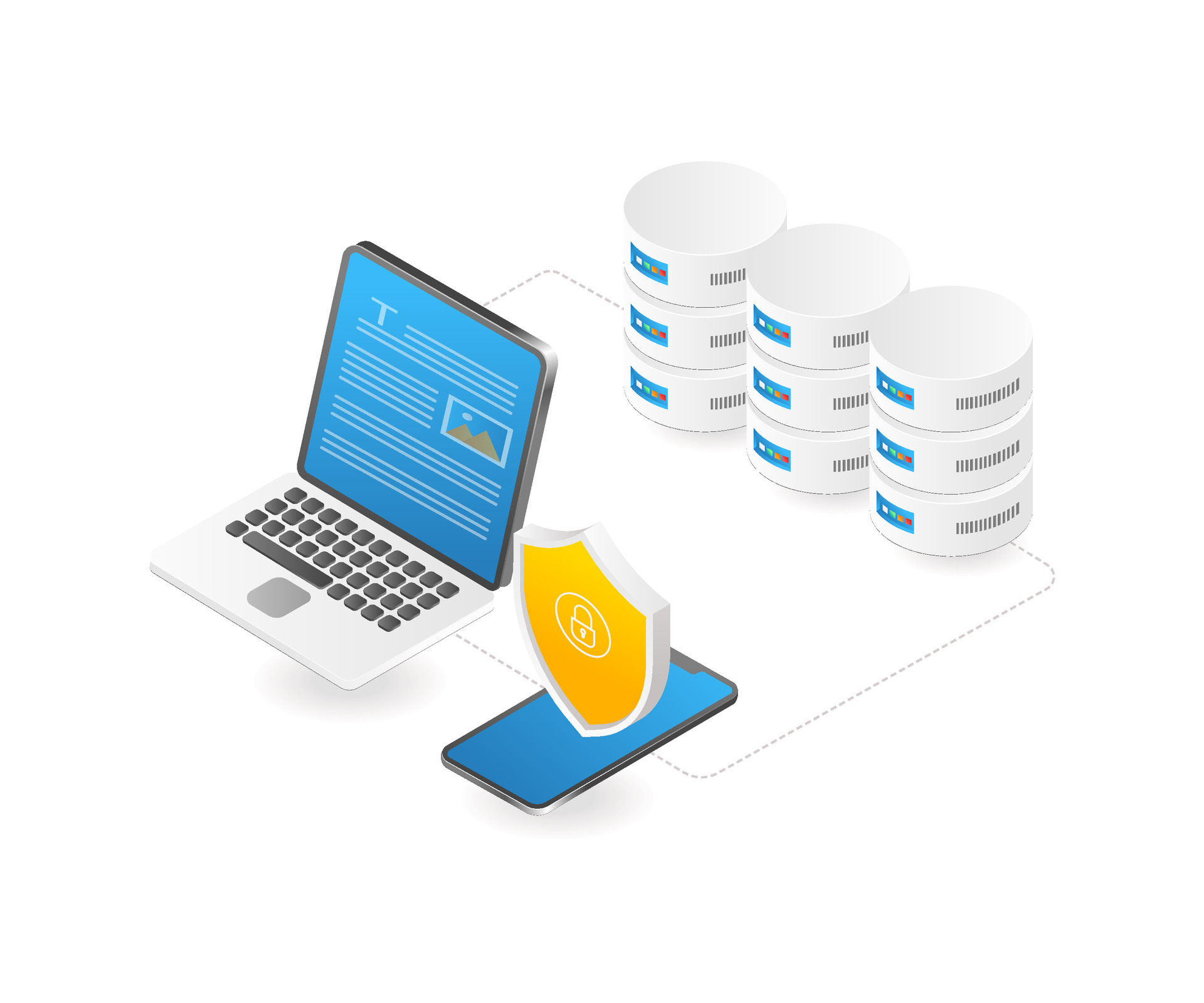Top 10 Platforms To Deploy Web Applications: Update 2023

Why is it critical to select an appropriate deployment platform?
Selecting the appropriate platform to deploy web application holds significant importance due to several reasons:
- Critical Performance Impact: The choice of platform directly influences the performance of your web application, affecting its speed, reliability, and ability to handle user traffic effectively.
- Scalability and Adaptability: The right platform enables seamless scalability, allowing your application to grow without complications, accommodating increased demand and evolving requirements.
- Cost Optimization: Opting for the right platform ensures cost efficiency by providing suitable resources and pricing models aligned with your application's needs, preventing unnecessary expenses.
- Security and Regulatory Compliance: The chosen platform should offer robust security features and compliance measures, safeguarding sensitive data and ensuring adherence to industry standards and regulations.
- Enhanced Developer Experience: A well-suited platform offers a developer-friendly environment, streamlining deployment processes, integrating effectively with tools, and fostering efficient workflows, ultimately boosting developer productivity.
Top 10 platforms to deploy web applications
Railway
Railway is a platform that enables rapid and straightforward deployment of web applications to the cloud. Its deployment strategy relies on containers, utilizing Docker to package apps and Kubernetes to distribute them to the cloud. Here are the distinctive characteristics of Railway's deployment approach:
Features:
- Git-Based Deployment: Railway seamlessly integrates with Git, allowing developers to deploy web applications by simply pushing their code to a Git repository. Railway automates the deployment process, handling the deployment pipeline from code to the cloud.
- Container-Centric Deployment: Railway employs Docker containers to bundle and deploy web applications to the cloud. This method ensures a dependable and portable way to run applications across various environments.
- Kubernetes Orchestration: Utilizing Kubernetes, Railway controls and orchestrates the deployment of containers. This facilitates a reliable and scalable approach to managing cloud-based applications, ensuring efficient resource utilization
- Customizable Environments: Railway offers pre-defined environments such as Ruby, Node.js, and Python for deploying web applications. Additionally, developers can customize these environments by configuring dependencies and settings according to their specific requirements.
- Integration with Databases and Services: Railway provides seamless integration with various databases and services like MongoDB, Redis, AWS S3, and others. This integration contributes to a comprehensive cloud architecture for applications, offering a range of compatible services for developers' needs.
IBM Cloud
IBM Cloud offers a suite of services encompassing Infrastructure as a Service (IaaS), Platform as a Service (PaaS), and Software as a Service (SaaS), enabling developers to build, deploy, and manage cloud applications using diverse tools and resources provided by the platform.
Features:
- Language and Framework Support: IBM Cloud caters to a wide array of programming languages and frameworks such as Java, Node.js, Python, Ruby, and PHP, among others.
- Flexible Deployment Options: It provides versatile deployment choices, including serverless computing, virtual machines, and container-based solutions, accommodating varied application needs.
- DevOps Integration: IBM Cloud facilitates a streamlined development and deployment process by integrating seamlessly with popular DevOps tools like GitHub and Jenkins.
- Robust Security Measures: IBM Cloud offers advanced security features such as network isolation, encryption, and robust identity and access management, ensuring the protection of applications and data.
- Analytics and Machine Learning Services: It provides a range of analytics and machine learning services, including Watson Studio, empowering developers to create and leverage machine learning models for their applications.
- Pay-As-You-Go Pricing: The platform operates on a transparent pay-as-you-go pricing model. Developers are charged solely for the resources consumed by their applications, without any upfront costs.
GitHub Pages
GitHub Pages offers a straightforward solution to deploy web applications in the form of a simple website. Setting up GitHub Pages is effortless for existing GitHub users, often requiring no programming language expertise to begin.
Features:
- Ease of Use: GitHub Pages excels in simplicity to deploy web applications and management. Users familiar with GitHub find it particularly convenient as no additional learning curve is required.
- Ideal for Content-Based Sites: It is well-suited for content-focused websites like blogs or static sites, making it an excellent choice for documentation-driven projects.
- Custom URLs: GitHub Pages allows the transfer of your site to a custom domain, enabling users to have a personalized URL for their GitHub Pages website.
- Built-in Security: Websites generated on GitHub Pages are inherently secure, operating within GitHub's infrastructure, which ensures a level of security and stability for the hosted content.
Vercel
Vercel serves as a serverless application deployment platform, offering rapid deployment and hosting solutions for web apps. Its user-friendly interface simplifies workflow initiation and deployment processes, making it a favored choice among developers.
Features:
- Effortless Deployment: Deploying web applications and hosting them is a straightforward process, requiring only a few clicks. The platform's CI/CD feature allows app state observation for each git branch before merging. Utilizing CDN ensures fast and secure deployment.
- Free and Flexible Plan: It offers a perpetual free tier for personal and non-commercial usage.
- Serverless Edge Functions: These functions facilitate moving server-side logic to Vercel's managed network edge, enhancing app dynamism without compromising performance.
- Server-Side Rendering (SSR) Support: Unlike many other deployment platforms, Vercel supports SSR, providing an excellent architectural option for apps.
- Domain Management: Vercel provides app-specific domains and allows easy configuration for custom domain mapping.
- Marketplace Integration: Seamless integration with various services and databases extends the application's functionality.
- Starting Templates: Ready-to-deploy templates expedite initial development and subsequent deployment.
- Analytics: Monitoring app performance based on user interactions and visits is available, although this feature is not part of the free plan.
Heroku
Heroku, a Platform as a Service (PaaS), offers support for multiple programming languages like Node.js, Python, Go, and Java. Differentiating itself from providers like Vercel and Netlify, Heroku boasts distinctive features:
Features:
- Language Versatility: Heroku's standout feature lies in its support for configurable "dynos," allowing hosting on a virtual system, providing flexibility for various programming languages.
- Fullstack Deployment: With support for multiple languages, Heroku facilitates deploying full-stack applications, catering to a broader spectrum of development needs.
- CI/CD Integration: Seamlessly connecting to code repositories on platforms like GitHub and enabling auto-deployment is straightforward, streamlining continuous integration and continuous deployment processes.
- Add-On Services: Heroku offers add-ons such as SendGrid for emails and MongoDB for databases, allowing users to extend application functionalities without managing these services, which is a significant advantage.
- Plans & Pricing: While Heroku offers a free tier for personal use, commercial endeavors require suitable plans. The platform caters to apps, prototypes, and non-profit side projects under the free tier.
- Code & Data Rollback: In case of issues, Heroku ensures security by enabling code and data rollback to a previous instance, providing a safety net for developers.
- App Metrics: Users can monitor application performance, enabling informed decision-making to enhance and optimize their applications.
- Community-Driven Buildpacks: Leveraging community-driven buildpacks, Heroku allows users to extend and customize their technology platforms according to specific needs and preferences.
DigitalOcean
The DigitalOcean app platform stands as a robust system designed for the development, management, and deployment of web applications, offering a fully managed environment that allows developers to focus solely on application development.
Features:
- Extensive Language Support: Supporting various programming languages such as Node.js, Python, JavaScript, Go, and Ruby, the platform accommodates a wide range of development preferences. Additionally, it allows the deployment of container images and static websites.
- Built-in Security: DigitalOcean prioritizes application security by default. It handles SSL certificate renewal, actively mitigates security threats, and ensures automatic secure connections for applications.
- Fully Managed Services: Managing infrastructure, deployment, provisioning, and dependencies is taken care of by the platform. It offers a user-friendly deployment workflow, allowing users to deploy web applications, background workers, and APIs effortlessly.
- CI/CD Integration: Enabling auto-deploy facilitates the direct deployment of code from GitHub repositories, streamlining the continuous integration and continuous deployment process.
- Alerts & Monitoring: Users have access to monitoring tools that allow tracking of their application's performance post-deployment, enabling them to observe and optimize performance.
- Pricing & Plans: The platform offers a free trial plan with certain limitations, providing users an opportunity to explore its features before opting for a paid plan.
Netlify
Netlify stands out for its exceptional performance in delivering client-side applications swiftly. Deploying web applications through this platform is remarkably straightforward and offers a vast array of impressive features.
Features:
- Integrated CI/CD: Integrating code with GitHub and other version control services is hassle-free. Netlify supports automatic deployment and provides preview builds for each branch.
- Favorable Pricing Plan: A flexible pricing structure for hosting client-side applications is available. Additional plans are needed for team usage.
- Domain and DNS Management: Netlify offers customizable app-specific URLs and straightforward DNS management.
- Cloud-Scale Serverless Functions: It enables the creation of serverless backend functions powered by AWS Lambda, acting as backend services to fulfill various tasks.
- Identity & Authentication: Netlify's Identity and Authentication service simplifies login and registration management, seamlessly integrated with app hosting.
- Plug-ins: Netlify's plug-ins enhance build capabilities, offering checks such as accessibility, end-to-end tests, and HTML validations. Custom plug-ins are also supported.
- Forms: Netlify's forms streamline form submission management without requiring server-side code.
- Analytics: Analytics for every deployed project can be enabled using Netlify, yet this feature isn't included in the free plan.
Google App Engine (GAE)
Google App Engine (GAE) is a Platform as a Service (PaaS) solution offered within the Google Cloud Platform, designed to empower developers in building and deploying web applications without the need to manage the underlying infrastructure.
Features:
- Simplified Deployment: GAE simplifies the process of uploading web applications to the cloud. Developers only need to upload their code, and the platform takes charge of tasks such as scaling, traffic distribution, and resource management.
- Auto Scaling: It autonomously scales applications in response to demand and traffic fluctuations, ensuring adequate resources are available to manage surges in traffic.
- Language Flexibility: Supporting various programming languages like Java, Python, Go, PHP, and Node.js, GAE provides developers with the flexibility to code in their preferred language.
- Integration with Google Cloud Services: GAE seamlessly integrates with other Google Cloud services such as Google Cloud Storage, Google Cloud SQL, and Google Cloud Pub/Sub. This integration streamlines the development and deployment of applications that leverage these services.
- High Availability Design: GAE is engineered with failover and redundancy mechanisms to ensure continuous application functionality and availability, minimizing disruptions in case of failures.
AWS Elastic Beanstalk
AWS Elastic Beanstalk, a PaaS solution within Amazon Web Services (AWS), streamlines deploy web applications by abstracting the complexities of infrastructure management.
Features:
- Monitoring Capabilities: Elastic Beanstalk offers robust monitoring and logging tools, empowering developers to assess application performance and swiftly detect any issues that arise.
- Language Versatility: Supporting multiple programming languages like Java, .NET, PHP, Node.js, Python, Ruby, and Go, Elastic Beanstalk accommodates a wide range of application development.
- Seamless Integration: It seamlessly integrates with various AWS services like Amazon RDS, Amazon S3, and Amazon CloudWatch, facilitating the creation of sophisticated applications utilizing these services.
Scalingo
Scalingo, a Platform as a Service (PaaS) provider, empowers developers to manage, launch, and scale their web applications efficiently within the cloud environment. Leveraging Docker and Kubernetes technologies, Scalingo adopts a container-based deployment model, enabling adaptable and scalable infrastructure.
Features:
- Git-Based Deployment: Developers can seamlessly manage the deployment process within their workflow by deploying applications directly from a Git repository, streamlining the development-to-deployment pipeline.
- Container-Based Deployment: Scalingo utilizes Docker containers to package and deploy applications to the cloud. This approach ensures a reliable and portable method for launching applications across diverse environments.
- Automated Scaling: Scalingo automatically scales applications based on demand, ensuring they can handle sudden spikes in traffic without manual intervention, offering scalability and reliability.
- Add-On Marketplace: Scalingo provides an add-on marketplace for easily connecting additional services like databases and email services to applications, expanding their functionalities.
- Customizable Environments: Offering predefined environments such as Ruby, Node.js, and Python, Scalingo allows developers to deploy web application. Moreover, developers can customize these environments by specifying dependencies and configuration settings.
Conclusion
As the digital realm continues to expand, the demand for seamless and efficient web application deployment platforms persists as a pivotal need for developers and businesses alike. As we embrace the future of web development, these platforms stand as pillars of support, empowering developers to craft, deploy, and scale web applications with unprecedented efficiency and agility. As a leading software development firm based in Vietnam, Axalize's dedicated teams are committed to helping you build robust, scalable, and secure web applications that meet your business requirements.


